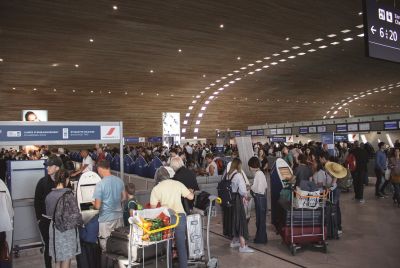UK Care Firm Gloriavd Accused of Exploitative Visa Charges for Workers from Africa
These accusations surfaced after the Home Office included care workers in the UK's shortage occupation list in 2022, aimed at addressing the 165,000 vacancies in care homes and domiciliary care.

Zimbabwean care workers were instructed to remit the amounts to Gloriavd Health Care Ltd as a condition for facilitating social care positions in and around Leeds and Bath.
They alleged receiving significantly fewer paid work hours than initially promised, residing in overcrowded accommodations, and being subjected to the prospect of their behaviour being reported to the Home Office, instilling a fear of potential deportation if they voiced their grievances.
The exploitation allegations have come to light as a result of investigations into the financial practices of the care firm.
It is reported that workers were charged fees ranging from £5,000 to £10,000 for visa sponsorship, a stark contrast to the actual cost of visa application and processing, which typically amounts to a fraction of the charged fees.
A woman claimed that she sold her house in rural South Africa, raising £6,500 in fees for Gloria Van Dunem's company, only to discover that she and her colleagues had such limited employment that they had to resort to food banks.
Winnet Mushaninga, a 40-year-old qualified care worker from Zimbabwe residing near Durban, expressed her distress, stating, "She took all that I had. The trauma and suffering were too much. We paid a lot of money. It's just painful."
These accusations surfaced after the Home Office included care workers in the UK's shortage occupation list in 2022, aimed at addressing the 165,000 vacancies in care homes and domiciliary care.
Additionally, the array of concerns seems to go beyond the parameters communicated by the Home Office to visa sponsors in terms of reporting obligations.
The guidelines enumerate reporting responsibilities, encompassing situations where a worker is absent without permission for over 10 consecutive working days or experiences an absence without pay or on reduced pay for more than four weeks within a year.
The guidance specifies that the Home Office does not require notification if a sponsored worker temporarily departs from the UK, such as for a holiday.
Growing apprehensions surround the potential exploitation of the immigration route by certain social care and employment agencies.
This practice has raised ethical concerns, with critics arguing that it exploits vulnerable individuals seeking employment opportunities in the UK.
Many of the affected workers come from economically disadvantaged backgrounds and view employment in the UK care sector as a means to improve their living conditions and support their families.
The issue extends beyond the financial burden imposed on the workers.
The exorbitant fees also create a power dynamic that could potentially lead to the exploitation of migrant workers.
The fear of jeopardising their chances of securing employment may discourage individuals from raising concerns about working conditions or seeking better terms of employment.
The care sector, known for its high demand for skilled and unskilled workers, has been under increased scrutiny in recent years regarding fair labour practices.
The allegations against this care firm add to existing concerns about transparency, fairness and ethical treatment of workers in the sector.
The implications of such exploitative practices extend beyond individual workers to the broader social and economic landscape.
Exploitation not only harms the affected individuals but can also contribute to a cycle of poverty, reinforcing existing inequalities.
Furthermore, it raises questions about the responsibility of companies within the care sector to uphold ethical standards in their recruitment and employment practices.
The Home Office imposes a maximum fee of £551 for a visa for care workers, while the cost of a sponsor license for a small company seeking to employ foreign care workers stands at £536.
Established in 2020 by Gloria Van Dunem, Gloriavd Health Care Ltd is registered with the Care Quality Commission, receiving a rating of "requires improvement".
The NHS Integrated Care Board in Leeds has confirmed awarding the company two consecutive contracts, designating it as an approved provider for delivering care in people's homes.
As the investigation unfolds, attention is turning towards potential reforms within the care sector to ensure that recruitment practices are transparent, fair and in compliance with ethical standards.
© Copyright IBTimes 2025. All rights reserved.






















